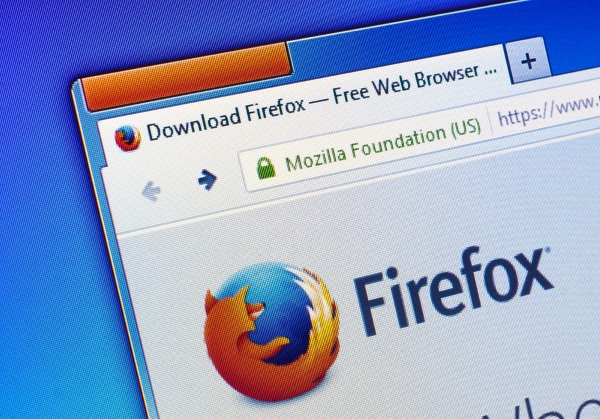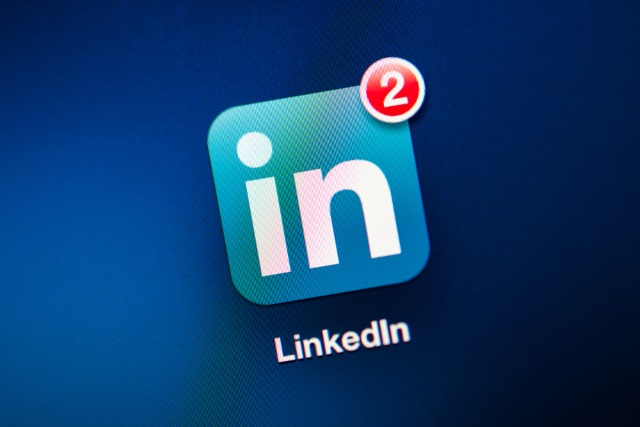
European Court of Justice will determine the legality of mass surveillance in the UK
The Investigatory Powers Tribunal has ruled that the legality of mass surveillance in the UK should be decided by the European Court of Justice. The ECJ has already ruled that governments engaging in "general and indiscriminate retention" of data is illegal, and this led campaign group Privacy International to bring a case.
The ruling means that only targeted interception of data and communication is permissible, something which the Investigatory Powers Act -- also known as the snooper's charter -- goes far beyond.

Poor security design and how not to handle a cyber attack -- lessons from Equifax
The data breach at credit agency Equifax looks to be one of the biggest in recent times. Industry experts have been quick to criticise both the company's security and its response to the breach.
Once again we've seen a breach exploiting a web app vulnerability that has managed to go undetected for several months. There has also been criticism of Equifax executives actions in selling $1 million worth of stock before going public about the breach.

Employer breached worker's privacy by reading private messages sent through work account
A Romanian worker's "right to a private life" was breached when his employer read private messages sent using his work Yahoo Messenger account. The European Court of Human Rights agreed with Bogdan Bărbulescu that previous court hearings had failed to address the issue correctly.
A majority of 11 out of 17 judges said that Bărbulescu's right to a private life was infringed upon when his employer read through chat logs containing both private and professional content.

30 percent of Americans would leak private data for $1,000
As we carry out more of our day-to-day transactions online, so the amount of information about us that exists out on the internet grows.
That means there are more and more opportunities for data to be leaked or stolen, but a new study by IT staffing company Modis reveals that people still aren't taking their privacy seriously.

You can help Purism build the secure open source Linux-based 'Librem 5' smartphone
It used to be that very privacy conscious people were viewed as being a bit paranoid. Some of these evangelists for security and privacy would speak of conspiracy theories about governments and hackers accessing your email, private data, webcam feeds, and more. Well, it turns out many of these folks weren't crazy, and their conspiracy theories were actual fact. As Edward Snowden highlighted, some governments and other organizations are out to spy on you -- both for control and profit.
Thankfully, consumers are starting to wake up and become more aware, and some companies, such as Purism, are designing products to safeguard users. The company's laptops, for instance, run an open source Linux-based operating system, called "PureOS" with a focus on privacy. These machines even have hardware "kill switches" so you can physically disconnect a webcam or Wi-Fi card. Today, Purism announces that it is taking those same design philosophies and using them to build a new $599 smartphone called Librem 5. The planned phone will use the GNOME desktop environment and PureOS by default, but users can install different distros too. Sound good? Well you can help the company build it through crowdfunding.

Privacy: Mozilla to test opt-out telemetry collection in Firefox
Plex recently caused controversy by changing its privacy policy so users could not opt out of data collection -- although the company backed down after assessing the level of concern it raised. Now Mozilla looks set to raise the hackles of privacy advocates as well.
Mozilla engineers working on the Firefox web browser are concerned that the current opt-in system of data collection does not allow for the collection of unbiased data about which websites users visit and so on. As such a test period of telemetry which is opt-out is planned.

Plex backtracks on controversial privacy policy change
Last week Plex upset a large portion of its userbase by announcing a change to its privacy policy. The change, which was due to take effect in late September, meant that it would not be possible to opt out of data collection.
After a serious backlash, the company has changed its mind, backtracking on the privacy policy update, saying that it recognized the concerns raised by users. The company insists that it was not trying to sneak the policy change by users and that it had no intention of selling data. Importantly, however, users are still going to be able to opt out of playback data collection if they want.

Plex updates its privacy policy -- and now you can't opt out of data collection [UPDATED]
Plex -- the much-loved media server software -- has updated its privacy policy, and people are not happy with the changes. Included among the changes is a notification that future features may collect and share details about what you're streaming.
Usage statistics are collected by many companies -- including Plex -- to improve products; moving forward users will not be able to opt out of this data collection. Needless to say, Plex users are more than a little upset.

Facebook will protect your privacy... when you're dead
Facebook won't -- usually -- hand over your private messages to anyone after you die. The social network has used a new blogging series called Hard Questions to reveal just how it handles deaths of its users.
The site's director of global policy management, Monika Bickert, says that Facebook aims to not only be sensitive, but also to respect the wishes of the deceased. After death, accounts are memorialized by default, but everyone is also free to create a "legacy contact" who will be able to mange their account in the event of their death. But Facebook is, it says, also keen to protect the privacy of survivors.

Kaspersky Secure Connection VPN service is free, but Android users aren't happy with the permissions it requires
In a time when people are more concerned about privacy than ever, security tools such as VPNs are proving increasingly popular. Kaspersky Lab recently released a VPN tool for Android, and reviewers are voicing concerns about the permissions required by the app.
Kaspersky Secure Connection: VPN service has a reasonable overall review score at time of writing, but the lower scores are highly critical of what are seen as privacy-invading permission requirements.

Microsoft is told there's nothing illegal about scraping public data from LinkedIn profiles
A federal judge has told Microsoft to stop preventing "talent management algorithm" hiQ Labs scraping data from public LinkedIn profiles. hiQ Labs has been using information gathered from LinkedIn to predict when people are going to leave their jobs -- information which is incredibly valuable to employers.
Microsoft was not happy at the data that hiQ Labs had been scraping from public profiles, and tried to stop it from happening. The company introduced "various blocking techniques" to prevent the startup from accessing the data and secure user privacy, but the ruling ultimately went in favor of hiQ Labs.

Why hackers love privileged accounts
Accessing privileged accounts is the hacker's number one choice of the easiest and fastest way to get access to critical data according to a new study.
Privileged account solutions specialist Thycotic carried out a survey of more than 250 hackers at 2017's Black Hat conference and found that 32 percent of respondents see privileged accounts as the best way of getting hold of sensitive data, with 27 percent preferring access to user email accounts.

Department of Justice wants to identify 1.3 million visitors to anti-Trump site
The Department of Justice is trying to force a web host to reveal the IP addresses of over 1.3 million visitors to an anti-Trump website. The DoJ is also requesting contact information, email content and photos.
The site -- #DisruptJ20 -- was used to organize protests against Donald Trump on the day of his inauguration. DreamHost says that it is fighting the warrant that has been issued, because the "information could be used to identify any individuals who used this site to exercise and express political speech protected under the Constitution's First Amendment. That should be enough to set alarm bells off in anyone's mind."

Privacy warning: Android apps infected with SonicSpy spyware can record audio
Security researchers from Lookout are warning about raft of spyware-infected apps that have been found in Google Play. Seemingly connected to Iraq, more than a thousand apps hve been found to include SonicSpy spyware.
The spyware is embedded in a variety of legitimate-looking apps, such as messaging tools based on Telegram. One such example is an app called Soniac which was found to be capable of not only recording audio and retrieving contacts, but also taking photos and gathering phone logs. Lookout warns that SonicSpy is sneaky, and tries to hide from users to avoid detection.

Former MI5 chief says UK government should not weaken encryption
The UK government has made no secret of its desire to exert greater control over the internet, and home secretary Amber Rudd has gone as far as suggesting that encryption should be weakened -- and backdoors should be included in software -- to make it easier to carry out surveillance on terrorists.
Lord Jonathan Evans, the former chief of MI5 in the UK, acknowledged that encryption had got in the way of monitoring communication between extremists, but said this should not be used as an excuse to weaken security.
